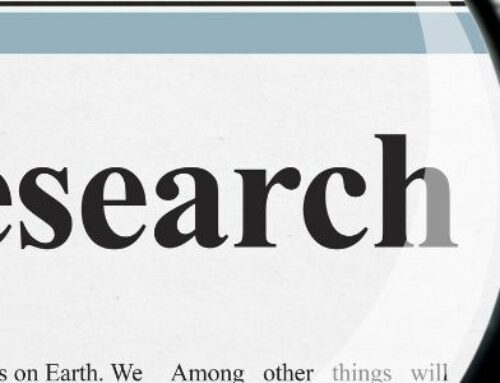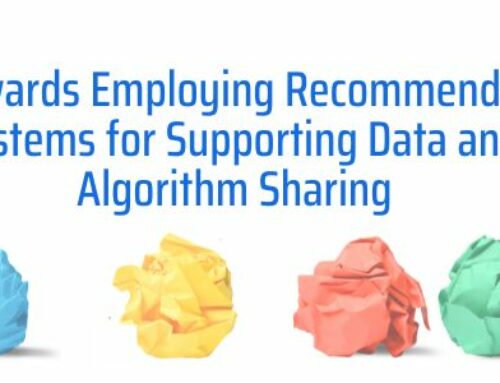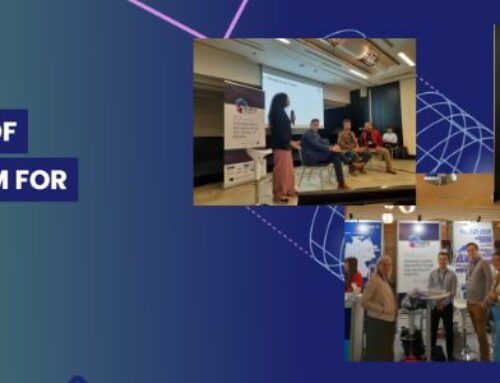Thoughts on business models and technical requirements
The amount of data available is at an all-time high – data has become an important raw material that is of high importance in almost every industry sector worldwide. Thereby a vital data economy and a successfully working Data-Services Ecosystem in Europe is one of the factors to enable and ensure sustainable employment and growth, and thereby societal stability and well-being. To keep up with international competition and help making global supply chains sustainable and more efficient we will need to adopt data-driven innovation and digital transformation.
To share personal and proprietary data within a data market, trust is a prerequisite for participants to be safe. This is not only a matter of technological development – also a sound legal and ethical foundation is necessary. In addition, viable and feasible business models are fundamental. Platforms to trade and exchange data in a trustworthy and secure way need to be built, accompanied by clear legal and ethical frameworks. Within them, it should be possible to offer and easily use data based services and related software and tools or receive training to improve the knowledge and skills of data professionals. There is a need of places that enable the connection between industries as well as the connection between industry and science and thereby enable the exploration of other marketplaces and data spaces.
Within TRUSTS we try to support these needs and necessary developments. Collaboratively with other actors in the European network we aim at sustainable innovations.
Data as a product – disruptive business development
A wide variety of business models for data marketplaces exist. TRUSTS has the ambition to create a data marketplace platform and federate additional ones. Therefore, it is essential to develop a broad and grounded understanding of the breadth of those business models that exist today and emerge in the future. Against this backdrop, deliverable D7.1 “Sustainable Business Model for TRUSTS Data Marketplace I” seeks to develop an understanding of the business model options of data marketplace platforms.
Following this, you can read about first strategic steps on how to transform the platform into a sustainable ecosystem in D7.7. Since data sharing is needed in the data economy to make data available for companies that wish to develop smart systems and innovative services, the ecosystem thought will be most relevant for the future path of European economy. While digital markets for trading data emerge, there is no consolidated understanding of how to price data products, offering incentives to data vendors for sharing data.
TRUSTS supports the emergence of a European data ecosystem, based on secured, safe and GDPR-compliant data exchanges and aims to develop a platform supporting these exchanges. Therefore, guidelines on how Intellectual Property Rights (IPR) will be managed by TRUSTS were developed within the first half of the project.
Functionality and requirements
To ensure that we target real market needs and work with up-to-date requirements, we collected the current state and relevant trends on the topic of data marketplaces. Therefore, we created a general overview on both, the academic view on the current state and different facets of data marketplaces in their “natural habitats”.
Read more in D2.1
From metadata to recommender systems – TRUSTS’ technical side
The TRUSTS project aims to develop a platform for trading data and data services in a trustworthy and reliable manner, which will enable a data economy in which privacy and security are at the forefront. The architectural design of the TRUSTS platform requires the orchestration of different components, which in turns necessitates the exchange of information in a consistent manner. During the first 18 months of this project, the experience of the different partners was collaboratively used to refine functional and architectural requirements and to put together a first prototypical implementation of the TRUSTS platform. From these experiences, the needs for metadata exchange were further tested and specified. D3.7 reports on the different uses that will be done of the TRUSTS Knowledge Graph, the specific metadata requirements of each of these as well as related metadata schemata.
Data has two major drawbacks, which prevent them from fulfilling its transformational potential. Firstly, high-quality data is hard to come by and secondly it is even harder to extract valuable information from it. Establishing a trusted marketplace for data, which is the vision of TRUSTS, would be a possibility to adress these drawbacks. To drive down transaction costs and to reduce the potential of market failure, a brokering instance in form of a recommender system is needed.
Read more about Profiles and Brokerage in D3.12
Which place will all of this take within Europe’s Data Economy?
To help people to acquire data-related skills TRUSTS will offer training programs to allow SMEs and large Enterprises to apply the TRUSTS Data Market platform within their business model. A first concept for a training and capacity building programme was developed lately. The aim is to build up sustainable competence in data market and its use.
You can find all of the TRUSTS deliverables in our deliverable section deliverable section.
TRUSTS will explore and develop its sustainability plan in open discussion with stakeholders from large, small, and medium enterprises, as well as with existing non-governmental organisations. If you are interested, have feedback or just want to talk – let us know!




